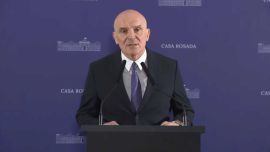A multimillion-dollar investment in Artificial Intelligence in Patagonia and the launch of the Stargate Argentina project have been presented as a historic milestone, but in such a charged electoral and geopolitical context, the question is not only what is being promised, but for whom, for what purpose, and under what rules.
With a mix of grandeur and emotion, a joint announcement was made Friday by global tech giant OpenAI (creator of ChatGPT), domestic company Sur Energy, and the Argentine government to develop a mega AI data centre in Patagonia. The launch included a video message from OpenAI CEO Sam Altman – one of the world’s most influential figures in AI – who spoke of a visionary partnership to place Argentina at the forefront of the digital future.
However, beyond the enthusiasm of the speeches, the episode deserves a critical reading that takes into account the political, geopolitical and corporate context in which it takes place. What is being presented as innovation may, in some circumstances, also serve as a tool for propaganda.
The public presentation of this project – and Altman’s endorsement of President Milei – comes just weeks before national elections, which the government is approaching amid hardships and setbacks. This timing turns what might have been a promising piece of development news into a gesture of political legitimisation. The image of “shared innovation” functions as a symbolic endorsement that can shape public perceptions beyond the concrete facts.
We cannot ignore that such symbolic gestures, even if they do not technically amount to electoral intervention, have real political effects: they grant reputational capital, especially when they come from globally admired figures.
Doubts also surround Sur Energy, which Altman described as one of Argentina’s leading energy companies – a claim that warrants closer scrutiny.
Reports suggest that while OpenAI would agree to purchase everything produced by the data centre – which in reality does not represent a direct capital contribution – its partner Sur Energy would be in charge of finding the construction company and assembling the financing pool for the project, precisely the most complex aspect of any such infrastructure project.
Without questioning the entrepreneurial initiative, Sur Energy is a little-known company with no visible credentials in technology infrastructure of the announced scale, yet it appears to be taking the lead on a colossal project. That such a low-profile firm should suddenly become a strategic partner in a project worth up to US$25 billion raises genuine questions about the structure of this alliance – questions that, in the name of transparency, ought to be clarified without delay.
The announcement must also be examined in light of the recent US$20-billion currency swap granted by the United States government to Argentina. According to the US Treasury Secretary Scott Bessent, the arrangement is contingent on President “Milei’s commitment “to getting China out of Argentina.”
The technology investment could be read as part of a geopolitical realignment in which the location of digital infrastructure serves as an instrument of international alignment rather than a purely inclusive development factor.
OpenAI presents itself globally as an organisation committed to developing Artificial Intelligence “for the benefit of humanity.” That mission, noble as it sounds, demands great maturity and prudence. Enthusiasm for innovation cannot justify partnerships that – even unintentionally – end up whitewashing polarising or unstable leaderships in fragile political contexts with weak legal safeguards. Investment is not neutral. Nor is public praise.
Technological development is welcome when it rests on transparent processes, solid regulatory frameworks and broad participation. But when it relies mainly on personal relationships, electoral timing and emotional narratives, an inevitable question arises: is this truly about building the future, or political marketing dressed up as innovation?
Argentina needs foreign investors, especially in technology. That is not in dispute. What must be debated is how these partnerships are built: through transparency or opacity, through institutions or personal shortcuts, with a vision for the country or with electoral urgency.
True innovation is not measured only in megawatts or servers. It is also measured in institutional quality and respect for democracy. And that standard – even in the age of artificial intelligence – should never be lowered.
*Irma Argüello, specialist in international security and ethical governance of AI.
related news
by Irma Argüello*
























Comments